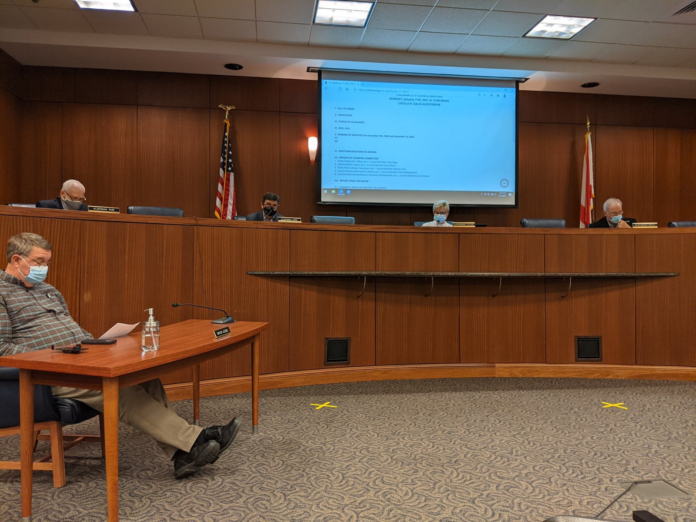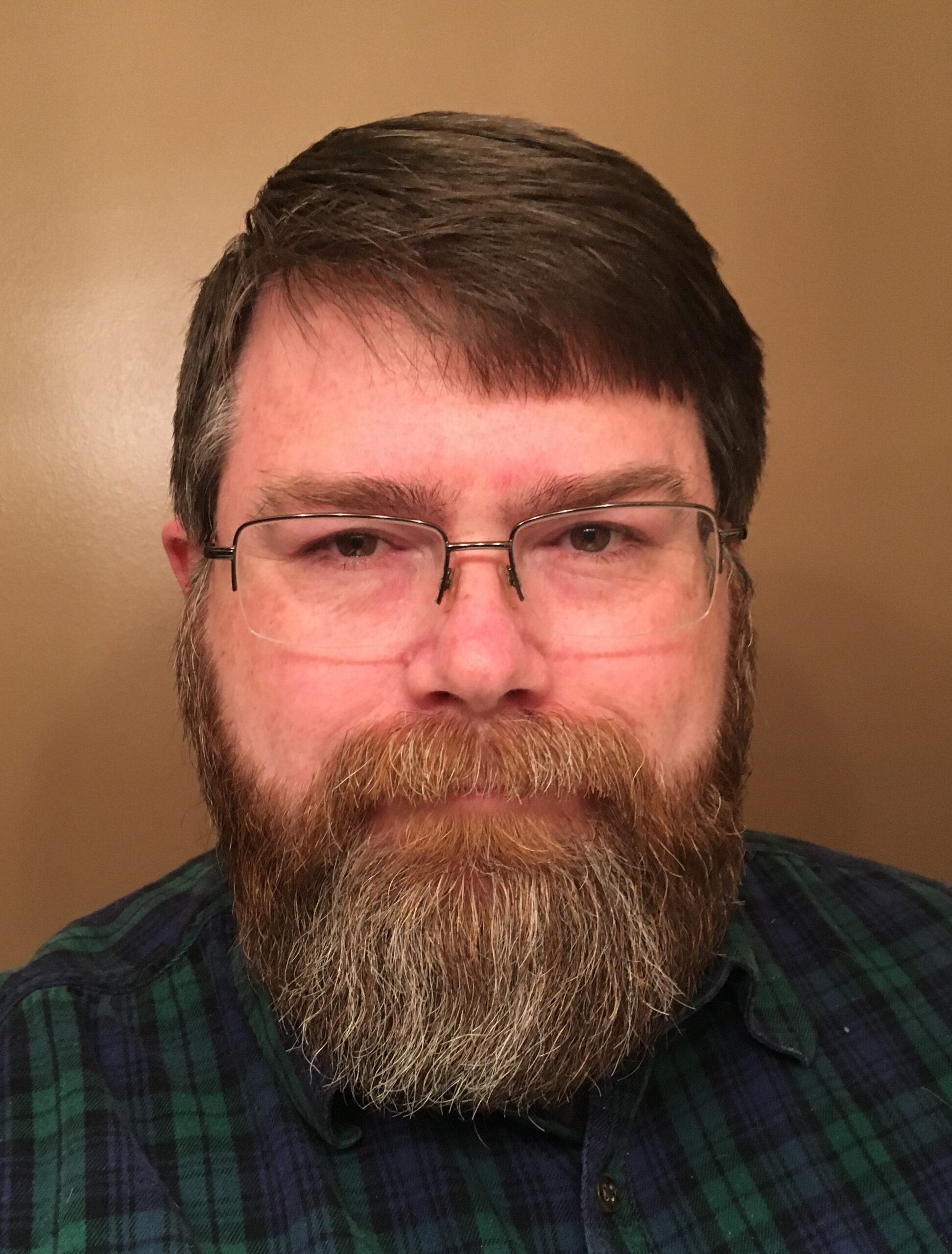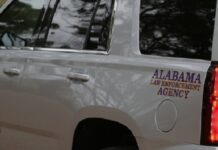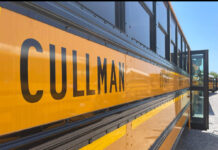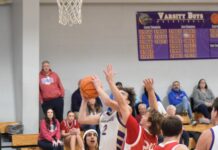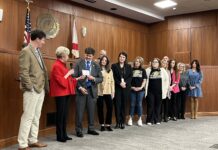CULLMAN, Ala. – In an early session on Monday, the Cullman City Council passed a resolution adopting what it termed a “traffic calming policy.”
According to the resolution:
“The purpose of this Policy is to create a safe environment for pedestrians and bicyclist in vehicular areas, attempt to reduce the vehicular travel speed and volume to an acceptable level on residential streets, reduce vehicular crash rate and severity, reduce cut-through vehicular traffic on residential streets, ensure overall safety and livability of residential neighborhoods, keep emergency vehicle access preserved at levels that meet national response standards and local requirements, and ensure that any traffic calming measure taken is designed and implemented in conformance with good engineering practices.”
City Engineer Erika York told the council that the policy will create a mechanism for residents to report issues and request the installation of traffic control devices like stop signs and speed bumps. According to the resolution, residents will fill out an online PDF form and submit it via email to the City Engineering Department.
Wastewater ordinance amended
The council suspended rules of procedure to amend the city’s wastewater ordinance, prohibiting the discharge of numerous materials into the wastewater system and creating penalties for those who do so.
According to the ordinance:
“A user may not discharge to the city’s wastewater collection and treatment facilities any of the following:
(1) Any liquids, solids, or gases which by reason of their nature or quantity are, or may be, sufficient either alone or by interaction with other substances to cause fire or explosion or be injurious in any other way to the city’s wastewater facilities or to the operation of the city’s wastewater treatment facilities. At no time, shall two successive readings on an explosion hazard meter, at the point of discharge into the system (or at any point in the system) be more than five percent nor any single reading over ten percent of the lower explosive limit (LEL) of the meter. Prohibited material include, but are not limited to, gasoline, kerosene, naphtha, benzene, toluene, xylene, ethers, alcohols, ketones, aldehydes, peroxides, chlorates, perchlorates, bromates, carbides, hydrides, and sulfides and any other substances which the city, the state or EPA has notified the User is a fire hazard or a hazard to the system.
(2) Solid or viscous substances which may cause obstruction to the flow in a sewer or other interference with the operation of the wastewater treatment facilities such as, but not limited to: garbage with particles greater than one-half inch in any dimension, grease, animal guts or tissues, paunch manure, bones, hair, hides, or fleshings, entrails, whole blood, feathers, ashes, cinders, sand, spent lime, stone or marble dust, metal, glass, straw, shavings, grass clippings, rags, sheets, pillowcase, eggshells, spent grains, spent hops, waste paper, wood, plastics, gas, tar, asphalt residues from refining, or processing of fuel or lubricating oil, mud, glass grinding or polishing wastes.
(3) Any wastewater containing toxic pollutants in sufficient quantity, either singly or by interaction with the other pollutants, to injure or interfere with any wastewater treatment process, constitutes a hazard to humans or animals, health, safety or the environment, create a toxic effect in the city’s wastewater treatment facilities or receiving water, or to exceed the limitations set forth in a categorical pretreatment standard or requirement of this article, the Alabama Water Pollution Control Act, or the Federal Pretreatment Regulations.
(4) Toxic pollutants including pollutants identified pursuant to Section 307(a) of the Act, hazardous constituents or wastes under RCRA, hazardous substances under CERCLA, except as specifically authorized under this article, permit or other authorization issued by the city.
(5) Any noxious or malodorous liquids, gases, or solids which either singly or by interaction with other wastes are sufficient to create public nuisance or hazard to life or are sufficient to prevent entry into the sewers for maintenance and repair.
(6) Any substances which may cause the city’s wastewater treatment facilities effluent or any other product of the city’s wastewater treatment facilities such as residues, sludge, or scum, to be unsuitable for reclamation and reuse or to interfere with the reclamation process. In no case, shall a substance discharged to the city’s wastewater treatment facilities cause the city’s wastewater treatment facilities to be in non-compliance with sludge use or disposal criteria, guidelines or regulations developed under Section 405 of the Act; any criteria, guidelines, or regulations affecting sludge used or disposal developed pursuant to the Solid Waste Disposal Act, the Clean Air Act, the Toxic Substances Control Act, or State Criteria applicable to the sludge management method being used.
(7) Any substance which will cause or has the reasonable potential to cause or contribute to an exceedance of any effluent limitation, exceedance or excursion of any water quality criteria or standard, or non-compliance with any condition set forth in the city’s NPDES and/or state disposal system permit, receiving water quality standards, or any applicable Federal, state, or local law.
(8) Any pollutants released at a flow rate and/or pollutant concentration which alone or in conjunction with other discharges causes interference to the city’s wastewater treatment facilities.
(9) Any wastewater containing any radioactive wastes or isotopes except in compliance with applicable federal, state, and local law and regulations and as specifically authorized by the city.
(10) Any wastewater which causes a hazard to human life or creates a public nuisance.
(11) Storm water, surface water, ground water, artesian well water, roof runoff, subsurface drainage, condensate, deionized water, cooling water and unpolluted industrial wastewater, unless specifically authorized by the city.
(12) Medical wastes or wastewater, except as specifically authorized by the city.
(13) Wastewater causing, alone or in conjunction with other sources, the POTW’s effluent to fail a toxicity text.
(14) Wastes prohibited by this section shall be processed or stored in such a manner that these wastes could not be discharged to the city’s wastewater system. All floor drains located in process or materials storage areas must discharge to the user’s pretreatment facility before connecting with the city’s wastewater system.
(15) Any wastewater with objectionable color not removed in the treatment process, such as, but not limited to, dye or ink wastes, and vegetable tanning solutions.
(16) Any wastewater having a temperature which will inhibit biological in the city’s wastewater treatment plant resulting in interference, but in no case wastewater with a temperature and /or in such quantities that the temperature at the POTW exceeds 40°C (104°F).
(17) Any gasoline, benzene, naphtha, fuel oil, or other flammable or explosive liquid, solid or gas.
(18) Any wastewater or wastes containing a toxic or poisonous substance(s) or any other material in sufficient quantity to injure or interfere with any sewage treatment process, or constitute a hazard to humans or animals, or crate any hazard in the receiving waters of the sewage treatment plant, and without proper pretreatment and written approval of the council.
(19) Any noxious or malodorous liquids, gases, or solids which either singly or by interaction with other wastes are sufficient to create public nuisance or hazard to life or are sufficient to prevent entry into the sewer for maintenance and repair.
(20) Any wastewater or wastes having an objectionable color which is not removable in the existing sewage treatment plant process.
(21) Any long half-life (over 100 days) of toxic radioactive isotopes, without special permit.
The council also gave first readings to two ordinances concerning water and wastewater fees.
Water fees
The proposed water fee ordinance set forth the following fees for connections, reconnections and other services:
a) Reconnection Fee $35
b) Reconnection Fees (After Hours) $60
c) Lock Replacement Fee $75
d) Replace Check Valve $100 plus cost of repair materials
e) Replace Curb Stop $150 plus cost of repair materials
f) Locate Service Line $500 plus cost of repair materials
g) Raise or Lower Meter $500 plus cost of repair materials
h) Unauthorized Water Use $500 plus cost of repair materials
i) Damaged Service $500 plus cost of repair materials
j) 3/4” Meter Installation with Box and Lid $800 plus cost of repair materials
k) 1” Meter Installation with Box and Lid $1,000 plus cost of repair materials
l) 2” Vault Installation $2,500 minimum plus cost of repair materials
m) 2” Meter Installation $3,500 minimum plus cost of repair materials
n) Fire Taps Fees will be determined on a case by case basis.
o) Account Transfer Fee within System $25
p) Service Fee for 3/4” water meter $100
q) Service Fee for 1” water meter $200
r) Service Fee for any water meter above 1” $300
The proposed ordinance also set fees for connection to the city’s water system, based on water line diameter. For residences within 1.5 miles of the interstate, extra procedures will double the listed fees.
- 3/4″ $500
- 1″ $1,500
- 2″ $5,000
- 3″ $11,000
- 4″ and above $17,500
Wastewater fees
The proposed wastewater fee ordinance set forth the following fees for connections, reconnections and other services:
a) Cleanout Cap Repair $30
b) Repair Manhole Ring and Lid $500 plus cost of repair materials
c) Unauthorized Sewer Use $500 plus cost of repair materials
d) Damaged Service $500 plus cost of repair materials
e) 2” Pressure Tap $720 plus cost of repair materials
f) 4” Sewer Tap $720 plus cost of repair materials
g) 4” Pressure Tap $720 plus cost of repair materials
h) 6” Sewer Tap $3,250 plus cost of repair materials
i) 6” Pressure Tap $3,250 plus cost of repair materials
j) 8” Sewer Tap $5,520 plus cost of repair materials
k) 8” Pressure Tap $5,520 plus cost of repair materials
l) 4” Relocate Sewer Service $1,440 plus cost of repair materials
m) 6” Relocate Sewer Service $6,500 plus cost of repair materials
n) 8” Relocate Sewer Service $11,040 plus cost of repair materials
o) Account Transfer Fee within System $25
p) Service Fee for 3/4” water meter $100
q) Service Fee for 1” water meter $200
r) Service Fee for any water meter above 1” $300
The proposed ordinance also set fees for connection to the city’s water system, based on water line diameter and equal to the connection fees in the proposed water fee ordinance.
Other council business
The council also approved resolutions to:
- authorize an agreement with ALDOT for cooperative maintenance for a Highway 157 access drive near the retail district near the Highway 157/Interstate 65 interchange
- amend the City of Cullman position control detail for the new garbage collection system, deleting two Equipment Operator II positions and adding two Equipment Operator III positions and an Administrative Assistant position
- enter into a contract with St. John & Associates for Streetscape Improvements on Second Avenue Northeast from Arnold Street Northeast to Oak Drive Northeast. Improvements will be similar to those done in other downtown areas.
The council set public hearings at its Feb. 8, 2020 meeting to:
- rezone property on Beech Avenue Southwest (near the Cullman County Sheriff’s Office) from M-2 Manufacturing to B-2 Business
- amend the zoning ordinance for the City of Cullman
- rezone property on Bolte Road from R-1 Residential to Planned Unit Development (PR-1)
The council also gave first readings to multiple annexation requests which will be considered at the next council meeting.
The Cullman City Council meets next at 7 p.m. Monday, Jan. 25, 2021 in the Cullman City Hall auditorium. The public is invited to attend, subject to occupancy limitations.
Copyright 2021 Humble Roots, LLC. All Rights Reserved.

